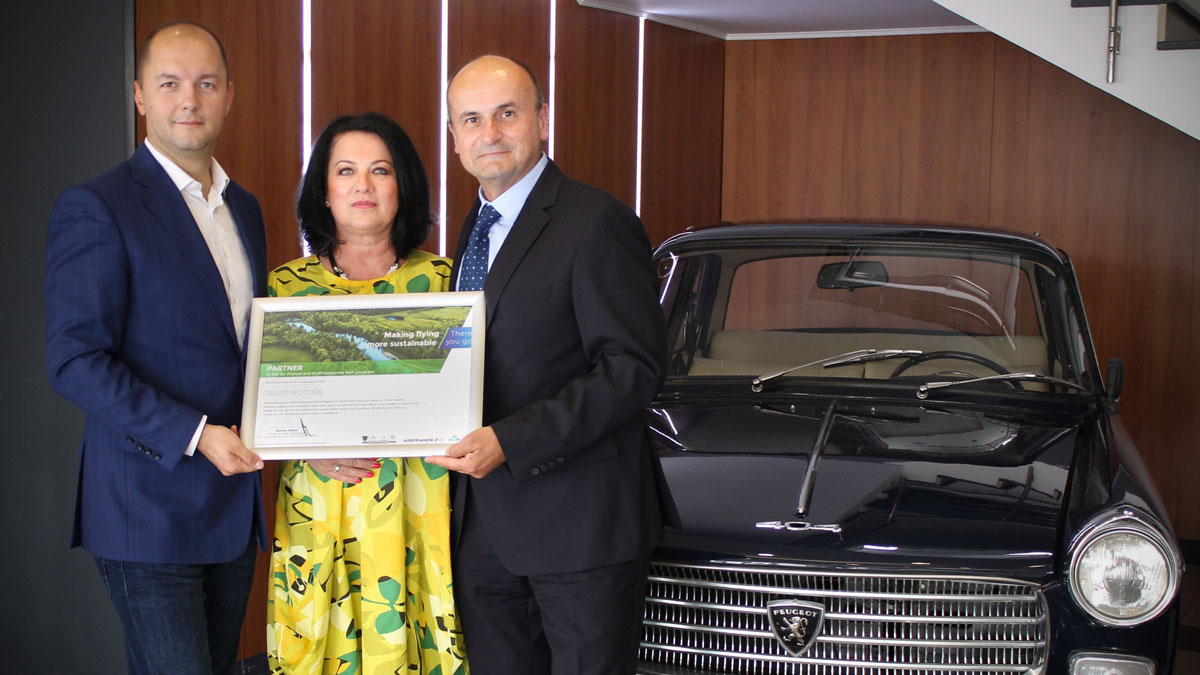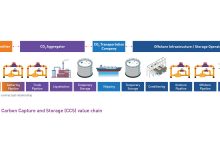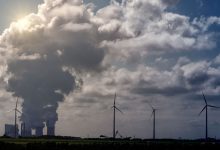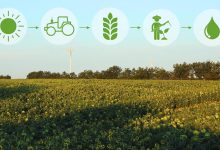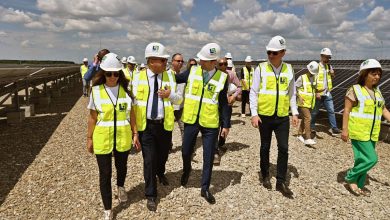Air France-KLM Romania and Trust Motors Agreement to Produce SAF
Air France-KLM Romania and Trust Motors have signed an agreement for the development of alternative aviation fuels, with the company taking an active role in reducing CO2. By investing in the airline’s dedicated Corporate SAF (Sustainable Aviation Fuel) programme, Trust Motors wants to contribute to the green transition of transportation in the aviation industry.
Sustainable Aviation Fuels, fundamental levers to reduce CO₂ emissions
In January of last year, Air France-KLM launched an innovative programme enabling companies to play an active role in the future of sustainable travel.
Through the SAF programme, Air France and KLM Corporate customers can estimate their CO₂ emissions associated with their travel, and then be able to determine an annual contribution they wish to devote to the Corporate SAF (Sustainable Aviation Fuel) programme. All Air France and KLM contributions will be invested in the sourcing and consumption of SAF. This will support the creation of a sustainable aviation fuel industry that guarantees increasingly eco-responsible air transport.
By investing in this corporate programme, companies are taking concrete action to reduce CO₂ emissions and are contributing to the ecological transition of air transport by supporting innovative solutions.
For many years, Air France and KLM have been involved in research and development programmes in the field of alternative fuels. In 2011, the two airlines were among the first to operate commercial flights, demonstrating a possible alternative to fossil fuels.
Sustainable aviation fuels can today be made from waste oils, waste products and forest residues. They can be incorporated into jet fuel without any engine modifications. Their use can reduce emissions by more than 85% compared to conventional fuel. The main challenge today is the development of a sustainable industry to which Air France and KLM’s corporate customers will be able to make a concrete contribution.
At a time when awareness of climate issues is at the heart of the strategy of many companies, the Air France-KLM Corporate SAF programme gives customers the opportunity to become players in the reduction of CO₂ emissions in the context of their business trips.
“The production of sustainable aviation fuel is very important in achieving global CO2 reduction targets. We are not alone in this effort to make our group’s activities as environmentally friendly as possible, and the partnership with Trust Motors proves this. This agreement is the first signed in Romania and a good example for corporate customers of airlines around the world,” said Razvan Radut, Country Sales Manager Romania for Air France-KLM.
“The importance of ethics and responsibility in the business environment plays a key role in maintaining the sustainable development and success of companies. By investing in Air France-KLM’s Corporate SAF programme, we want to be actively involved in reducing the CO₂ emissions generated in our business travel. We are very happy to be the first company in Romania to join this programme and we are confident that many more will follow,”, Stefan Andrei Iacob, CEO of Trust Motors, noted.
Background
Air France-KLM is a pioneer in testing sustainable aviation fuels. KLM made its first SAF-powered flight in 2009. Since then, the Group has multiplied the number of innovative programs. Between 2014 and 2016, for example, it carried out 78 Air France flights powered by a 10% SAF blend in collaboration with a Total affiliate. These tests showed that the use of SAF had no impact on the reliability of airline operations.
In February 2021, KLM operated for the first time in the world a passenger flight partly made of sustainably produced synthetic kerosene (on the route between Amsterdam and Madrid).
In May last year, Air France-KLM, Total, Groupe ADP, and Airbus joined forces to make the first long-haul flight fuelled by Sustainable Aviation Fuel (SAF) produced in France.
The flight was a tangible result of the four groups’ joint ambition to decarbonize air transportation and to develop a SAF supply chain in France, prerequisite for their widespread use in French airports.


